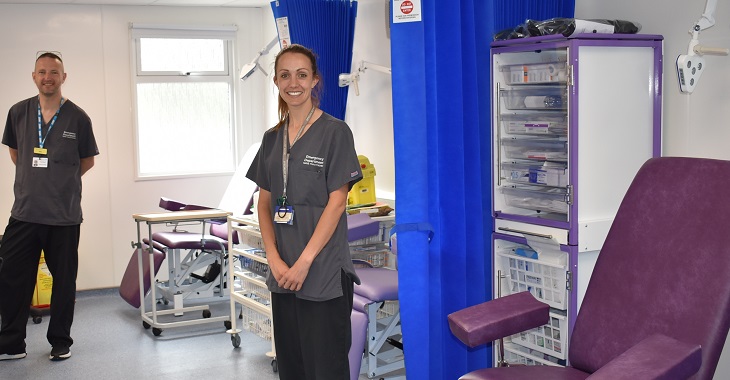A scientific nurse professional (CNS) is a licensed, graduate-level certified nurse who is also licensed in a specific specialized of interest. Getting specialty training demonstrates an advanced degree of clinical abilities and knowledge in a particular niche of nursing. In order to be a CNS, you must pass an authorized medical nurse professional course that stresses in the scientific abilities necessary for the position.
Scientific nurse experts are needed to meet a higher level of care than main nurses. Because they provide more specialized care in partnership with doctors, this is. As a result, CNSs need to have a much greater level of education than primary caretakers.
Becoming a Clinical Nurse Specialist At The Moment
The requirements to end up being a CNS include completion of a master's degree program, supervision or certification by a board of nursing, and the completion of nationwide accreditation requirements.
A master's degree program prepares CNSs for scientific nurse specialists' tasks that include direct client care in hospitals or other health care settings. It might also prepare people for positions in physician's workplaces or other health care centers.
For those interested in focusing on CNA skills, a four-year degree program will prepare you for a career as a CNA. To be considered for a four-year degree program, a trainee needs to have a high school diploma or a GED and must pass the NCLEX-RN exam.
As soon as a student has actually earned his/her degree, he/she should become a Registered Nurse or Registered Nurse, in order to start working LPN training as a CNS. A couple of states enable students to finish their master's degree in nursing before moving on to the next level, while the majority of need a four-year degree. In order to become a Registered Nurse, a prospect must pass the state board exam.
Students thinking about specializing in the specialty can obtain their Registered Nurse license after they pass the board test. Once a student has actually finished a recognized medical nurse professional degree program, he/she needs to be qualified to get positions with regional healthcare facilities, health care facilities, doctors and clinics' workplaces.
Transforming Into a Medical Nurse Specialist Today
A couple of states enable the non-medical professional to become a CNS in the same way as medical nurses. In these states, nurses are required to finish a training program and pass a licensing test to get approved for the task. Candidates who do not have a degree in nursing will require to complete a course of study that provides them with understanding of patient care and fundamental science. After training, graduates will then have the ability to take the licensing test and will be certified to work as a nurse professional in the majority of states.
Patients tend to feel more comfy handling clinical nurse professionals rather than with generalists or nurses. This is due to the fact that patients are most likely to get care from an expert, as professionals handle more customized situations. A CNS is likewise trained to handle cases and evaluate their patients' requirements much better than a nurse.
Nevertheless, professionals of medication believe that nurses perform much better physical and psychological recovery than medical nurse professionals. If you feel that you would take advantage of focusing on either psychology or physical therapy, you ought to finish a partner's degree or bachelor's degree program at a community college that trains nurses or check out programs at vocational and profession schools.

There are many chances for medical nurse professionals, as tasks ranging from full-time to part time and self-employment are widely available. Work settings include hospitals, nursing houses and other medical centers, and there is even a scarcity of professionals in some locations due to the aging Infant Boomers. The primary job function is to manage the clinical day to day activities of the facility, and to guarantee that clients are treated with self-respect and care. Some CNSs operate in home healthcare units where clients should be confessed to the health center, and they offer psychological and medical support to residents who can not live in your home.
How to Qualify As a CNS Clinical Nurse Specialist - Convenient Overview
Clinical nurse experts perform direct patient care in a variety of nursing positions, consisting of full time, part-time and home health assistants. The responsibilities of these experts are essential to the success of every healthcare facility, nursing home and other medical facility. They provide the direct contact with clients that is so crucial to the nurses and physicians administering treatment.
This position requires excellent organizational skills, interpersonal abilities, a sense of humor, in addition to accreditation from among the many certified nursing programs. Since this job needs direct client care, it is expected that CNSs will be involved in numerous conversations with patients and their households regarding medical procedures, medications, and treatments that will be most beneficial to them.